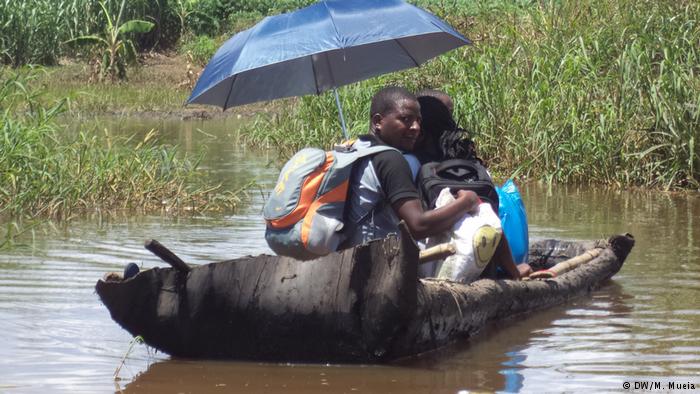Mozambique: Prosecutors must defend legality
The great and unequal war still happening in Chinde, 2018 – Mozambique

File photo: DW
Crocodiles have killed dozens of people on the island of Chinde, in the Mozambican province of Zambézia. Local residents accuse the authorities of doing nothing to protect them, while the government says it has no means of doing so, and is calling for help.
Dozens of people have been attacked by crocodiles in Chinde district, south of Zambezia province. According to local authorities, 15 people have died in attacks in the last six months alone.
“The problem is that there is no well for water so we drink the water from the river,” Chinde resident Inácio Costa says.
The population says that crocodiles even jump into canoes to attack passengers.
“In the Candaia area, people are attacked when they go fishing or cross the river to farm,” João Gordinho, another district resident says. “We are defenceless, and we are asking the government for help.”
“There is a great war against the crocodile”
Chinde Pedro Vírgula says he has done what he can to try to put an end to the attacks. The problem, he says, is that there is too little fish and too many crocodiles.
“The people there live off fishing and fish are running low in the sea, causing people to try other places to find fish, and that creates war with the crocodiles,” he explains.
“There’s a big war with the crocodiles. We have already received two weapons and have hunters, but, even so, we are not succeeding. So we are working with some leaders and influential people in the community to see if they can help us,” Vírgula says.
According to police spokesman Sidner Lonzo, only working together will prevent further deaths. “We have to work with community leaders to tell the population, especially children, not to go to the river,” he says.
Vírgula says that crocodile attacks have reached a level that exceeds the capacity of the local government to respond. ” There are many crocodile eggs on the banks of the Zambezi, but no campaign to collect them,” he complains.
“We have already raised this issue with the provincial government. There must be a campaign, or negotiations with the neighbouring countries to buy the eggs, or to involve some entrepreneur,” he says.
So far, DW Africa has not been able to get a response from the government.













Leave a Reply
Be the First to Comment!
You must be logged in to post a comment.
You must be logged in to post a comment.